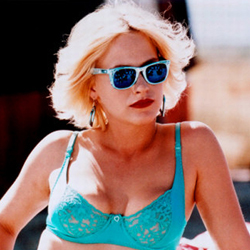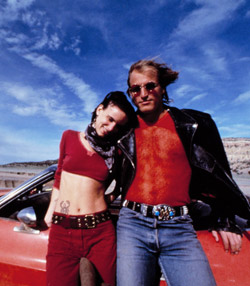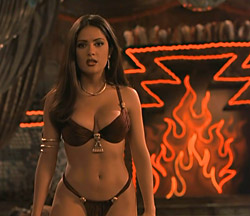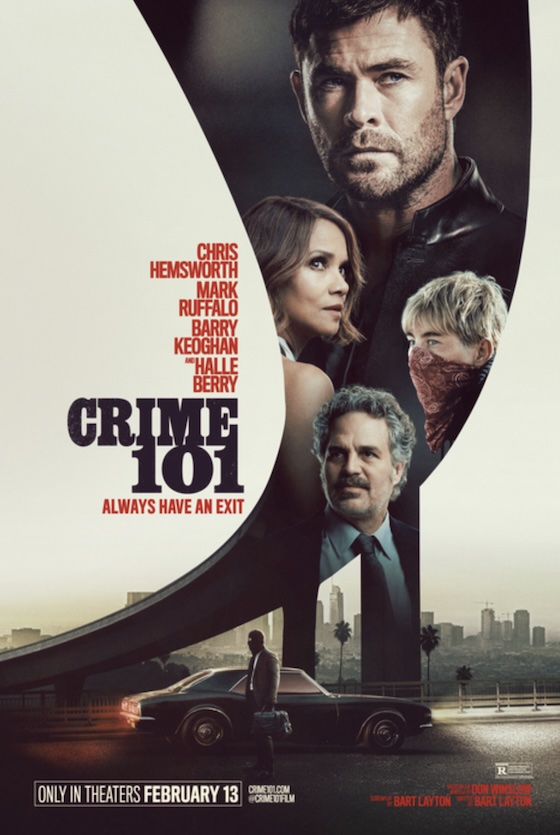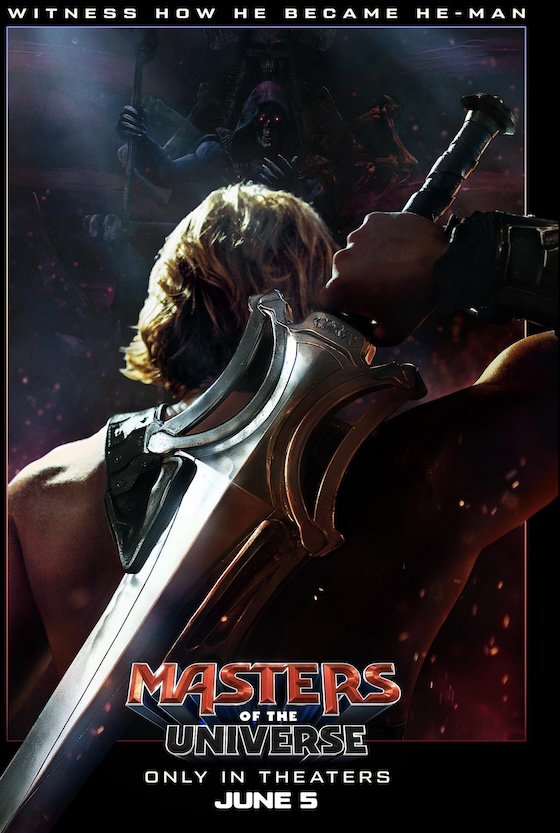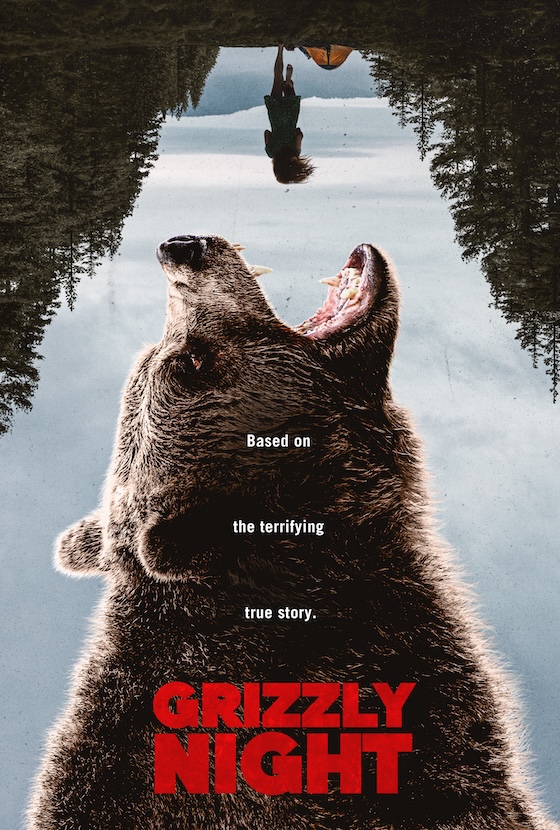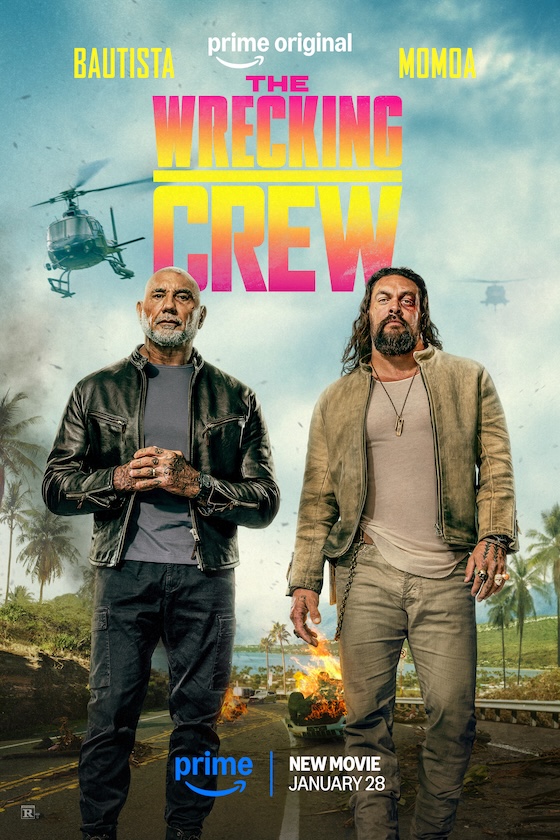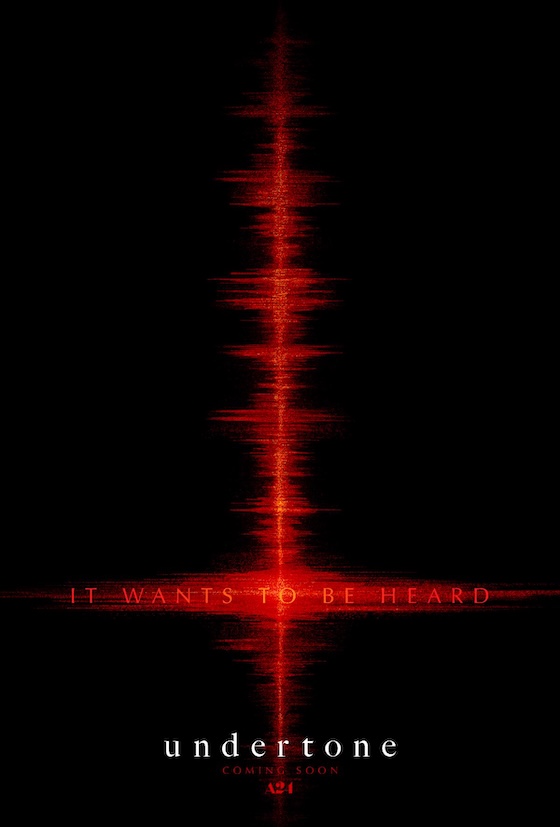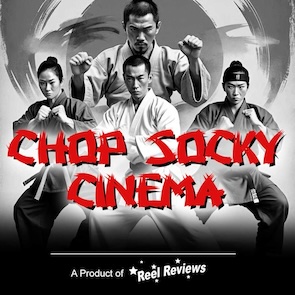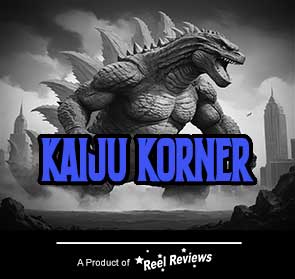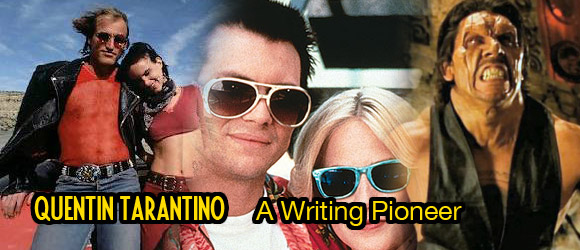
If one needed to sum up who Quentin Tarantino was in one word, I think the best one would be “pioneer.” He ushered in a new wave of film that is replicated over and over again, ad nauseum, until the entire pool is over saturated with Tarantino wannabees. He’s been nominated for his writing and his directing, and landed some of the once thought pastured actors Oscar nominations.
As we close out 2012, his most recent feature drops on Christmas Day - Django Unchained - we here at Reel Reviews decided it was best to reflect on the career of Quentin Tarantino. Tarantino represents a fantasy that every young writer would love to live out. He dropped out of high school to focus on his writing and sold multiple scripts and now he’s considered one of the most iconic directors of his generation, despite having directed less than 10 full features. When compared to Spielberg and Scorsese, he’s the youngling, but his collection of films have had just as much of an impact on the industry as both of those legendary directors. It’s a bold statement, but considering his catalog, his influence, I think it’s appropriate.
We’re breaking his career down into three sections: 1.) Writing (films he’s only written) 2.) 90s directing and 3.) 2000’s directing. All leading up to the debut of Django Unchained on December 25th. So if you’ve never heard of Quentin Tarantino, get ready to be... INFORMED!
In 1992 Reservoir Dogs was released by Miramax to rave reviews and solidified Tarantino as a director to watch. For the man himself, everything fell into place at the same time it seems. Dogs came out, and three of his screenplays were purchased and produced all within 3 years thus making him a powerhouse on the circuit.
To just focus on his writing, one needs to remove the fact that he has no power on the direction of the film after he’s written it. Thankfully, the director who took on Tarantino’s scripts were avid film lovers and removed very little from his original concepts.
True Romance
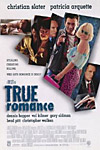
![]()
After Dogs came out, a rush of Tarantino scripts were greenlit - True Romance, Natural Born Killers, and From Dusk Till Dawn. One of the things Tarantino is great at is consistency. He’s woven this world of his that all of his characters seem steeped in and interact with each other in some form. True Romance boasted one of the strongest casts you’ll find for a 90s movie and a great director helming it - the late Tony Scott. An updated version of Bonnie & Clyde, True Romance follows two lovers as they trek the United States in hopes of selling a ton of cocaine they “stumbled upon.” In truth, Christian Slater’s Clarence (in his only good role) shot and killed Patricia Arquette’s pimp, Drexx - memorably portrayed in brief by Gary Oldman, and stole the drugs. From there they head to California to sell it, hoping to make enough green to live off of. What they didn’t count on was Christopher Walken wanting his money back and sending a couple of boys to rough up Clarence and Alabama.
|
|
| Patricia Arquette in True Romance |
Seems pretty basic right? Wrong. Tarantino isn’t a basic fella. The cast is long but short, given that their scenes are so small but yet so memorable. Anthony Hopkins won a Best Actor Oscar for his portrayal of Hannibal Lecter in Silence of the Lambs despite his on screen time being less than 20 minutes. That’s because it was powerful. Here, two veteran actors show off their brass in a simple conversation about eggplant. Walken and Dennis Hopper have their own motives. Hopper plays Clarence’s father, the only one to know where his son and new wife have absconded to. The scene shared by these two is the absolutely best part of Romance because it’s an unfiltered conversation displaying how despicable one can be, and also how clever the other is. It would be wonderful to say that this was all ad-libbed but it’s not, it’s straight from Tarantino. Something he’s criticized for and lauded for, is his ability to create dynamic dialogue between his characters. Some say it’s middling, like in Death Proof, but here it’s all building to something.
The dialogue is unrestrained, and Tarantino knows that it will get under your skin with the profanity and presentation. But that’s the point. You need to hate these guys, at least one of them, and Tarantino does this perfectly. The story progresses as it should with more characters that you loathe from James Gandolfini’s abusive Virgil to Bronson Pinchot’s scum sucking Elliot. All the mean while you hold Clarence and Alabama in your heart in hopes that they make it out alive. Once in California they meet up with an old friend Dick Ritchie (gullibly played by Michael Rappaport) and his roommate Floyd in a classic bit part by Brad Pitt. It seems strange to have Pitt in this role, a stoner who turns his Honey Bear into a smoking utensil, but he plays it so comically and so well that it’s a welcomed, albeit brief, comic relief before more the impending violence that Tarantino does so well.
Tarantino doesn’t skimp on the violence in his scripts. True Romance is tremendously graphic, in the lovable 90s way violence made everything essentially painted with blood. To understand the stories that are told from here on out by Tarantino, one must start with Romance because it’s the starting point for love. There are connections to these characters throughout the 90s that throwback to Romance.
Natural Born Killers
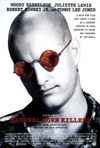
![]()
That’s why the perfect follow up to True Romance is Oliver Stone’s Natural Born Killers. Woody Harrelson and Juliette Lewis this time play reimagined versions of Clarence and Alabama, as Mickey and Mallory Knox - sadistic and murderous but madly in love with each other. This is Tarantino’s story pushed even further. The drawback to NBK is actually Stone’s influence on the script, to make it more topical and send a message, something Tarantino doesn’t do, but Stone does a little too much.
The Knox lovers are celebrities of violence, having successfully crossed the country killing just about anyone they want. They are followed closely by a very exaggerated newscaster played by Robert Downey Jr., who speaks with a fake Australian accent. Reviled since opening day, Killers is the least popular of Tarantino’s catalog, and with good reason. His influence was limited on this project, and Stone took too many liberties with a script that could have really told some amazing story. Instead we get some ham-fisted depiction of psychopaths and then a lesson on watching too much television. Why would Tarantino say that? It’d be fairly hypocritical to use the medium you’re condemning to get your message out.
|
|
| Juliette Lewis and Woody Harrelson in Natural Born Kilers |
But Stone doesn’t care. He stuffed the project with enough names to make it a spectacle: Tommy Lee Jones, Tom Sizemore, Rodney Dangerfield, and Pruitt Taylor Vince all turn in memorable performances, Sizemore in fact reprising a similar character to what he played in True Romance. Sizemore’s always been an underrated actor, but here he turns in the best supporting performance of the film as a sleazy detective chasing down the Knoxs. But what of the two leads?
Woody Harrelson has and always will be one of the best actors of our generation. He’s subtle, and at times you think he’s stupid, but the man can act. Less annoying than his partner, Mickey Knox is the product of an abusive and drug induced upbringing who swoops in to swoon Mallory and rescue her from her terrible life living with Rodney Dangerfield as her father (which one sympathizes). Harrelson is the perfect poster child for dysfunction. He’s got that inbred swagger to him, and he talks like he’s always got a mouth full of Skoal. There are anti-heroes, and then there’s Mickey Knox. Of course, anti-hero might not be the best way to describe him. At no point is he portrayed as a hero, doing anything right. He’s a sadist, and everything he does seems spur of the moment, like a demon who causes chaos for the sheer purpose of chaos. Harrelson steals the show completely, and NBK would be nothing without him.
In the Tarantino world, many characters seem directly connected. We’ve touched on the similarities between the Knox couple and the Clarence/Alabama tandem. One thing that connects all of Tarantino’s films is camaraderie. There’s a team, a tandem, partners, in every film of his. Pulp Fiction has Vincent and Jules, and as evidenced by the trailers so far Django Unchained has Django and Dr. King. There’s probably some friendship turmoil you could dig deeper into, but there’s no reason to. A fundamental aspect of our existence is friendship/camaraderie - humans thrive on it. So naturally Tarantino would use it as the foundation for most of his movies. It’s a director trademark and it begins with True Romance and flows into Natural Born Killers and plays a major part in From Dusk till Dawn.
From Dusk Till Dawn
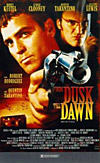
![]()
Dawn is the one movie that really has nothing to do with the rest of Tarantino’s filmography. There’s no true connection to other characters in other films at all with the small exception of Earl McGraw, the Texas Ranger who also appears in Kill Bill and Grindhouse (despite his almost immediate death at the start of Dawn). There are minor connections - Big Kahuna Burger makes a cameo as the preferred snack for the Gecko Brothers (another tandem, this time played by George Clooney as Seth, and Tarantino himself as Richie). Tarantino has a world built for his characters that includes fake brands like Red Apple cigarettes, and the aforementioned Big Kahuna Burger (it’s a Hawaiian joint).
The film opens with a young John Hawkes - who now appears to be everywhere in film, and racking up nominations for 2010’s subtle noir Winter’s Bone and most recently shortlisted as a frontrunner for The Sessions - working the register at a gas station/liquor store. The Texas ranger stops by for some refreshment and us the pisser. It’s at this point we find Seth and Richie off screen holding hostages - the ranger having presumably interrupted their attempt at robbing the establishment. Right from the start Tarantino shows his own character’s instability. Q’s performance is laughably bad, but for all intents and purposes, one can assume this is the point. It’s to present a light hearted pervert in the midst of violence, his sadistic ways and his murderous temperament.
The brothers make short work of the liquor store and move on with their other hostage (who is uncomfortably bound and gagged in the trunk) to a hotel room en route to the Mexican border. Once at the hotel they run into the recently widowed Jake (excellently portrayed by the always dependable Harvey Keitel). Keitel is a Tarantino mainstay, lending his voice briefly to Inglorious Basterds and of course stealing the show in Reservoir Dogs. Here he plays a widowed preacher, who’s taking his children on a vacation in the RV. Returning for another round of Tarantino work, Juliette Lewis plays Jake’s daughter Kate, and newcomer Ernest Liu plays Scott. Richie is immediately entranced with the young and sexy (I’ve never thought she was though) Kate, and has fantasies of her requesting him to pleasure her. Using the RV as cover, the Geckos are successful in reaching the Mexican border and into Mexico.
|
|
| Salma Hayek in From Dusk Till Dawn |
Up to this point Dawn functions like the previous films in Tarantino’s writing filmography. Violent, humorous, and often times very vulgar. It’s something all of his films incorporate. Once reaching Mexico, and more specifically their destination The Slippery Nipple and running into a dozen Cheech Marins - the atmosphere of Dawn changes drastically. Not only is this bar not taking kindly to the crew, but it also happens to be a bordello feasting ground for vampires. That’s right - vampires. No other film in Tarantino’s history has ever had a fantastical creature like Dawn. All of his other films are steeped in some form of reality. Dawn breaks the chain set forth by the first half hour of the film and flips it on it’s stomach. Richie is turned into a vampire and slowly the team that became so tightly bound by blood ends up demolished.
They are joined at different moments by the bar locals - a hilarious Fred Williamson (from the original Inglorious Bastards) who can rip hearts out, as well as veteran make-up artist and iconic horror movie guru Tom Savini as Sex Machine - a biker who uses a whip and a small cannon gun on his belt buckle. Both are turned into vampires eventually, but their brief heroism is much appreciated and fairly entertaining.
Before he was directing Jessica Alba on parenting her Spy Kids, Robert Rodriguez was making memorable westerns like Desperado and El Mariachi. Gaining influence from greats like John Carpenter, he is a frequent collaborator with Tarantino, even so much as inviting Q to direct a scene in Sin City. After introducing the world to Salma Hayek’s curves in Desperado, Rodriguez cast Hayek in another memorable scene as the first official vampire seen Santánico Pandemonium, who turns Richie into a vampire.
Dawn is unique to the filmography because of it’s narrative flipping on itself. What it lacks in believability it makes up for in special effects/make-up, and great dialogue. It also showcases a breakthrough performance for George Clooney, who before Dawn was just the guy on ER. Clooney would obviously have a very promising career after Dawn, but it’s great to see him in this role having fun and being a complete badass.
Tarantino has not solely written a film since 1996’s Dawn. The sale of these scripts, coupled with his high profile collaborations with Rodriguez, Scott, and Stone, would propel his career to a new height. He would now be able to focus entirely on writing and directing films, instead of having to sell it to some studio and have them direct it and alter it. It’s interesting to see how great his directing efforts are compared to his writing only efforts. One has to ask if the directors for these three films ever imagined Tarantino outshining them. Perhaps Oliver Stone should have trusted the original script for Natural Born Killers and not tried to bastardize it. We’ll never know.
To be continued...
Read Part Two of Three - Quentin Tarantino - 1990s Directing
Read Part Three of Three - Quentin Tarantino - 2000s Directing

